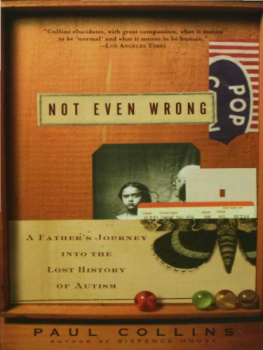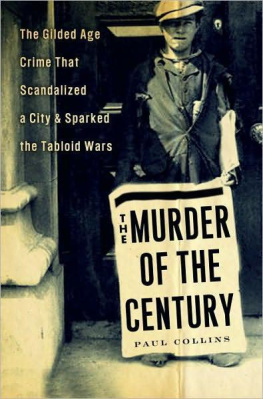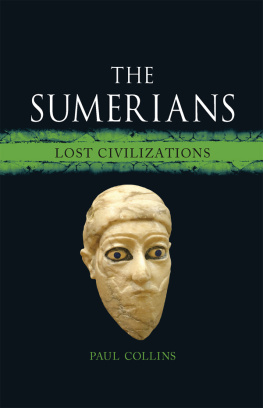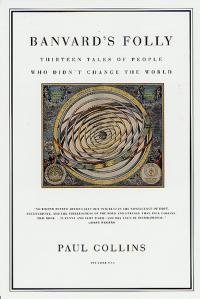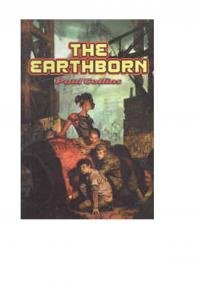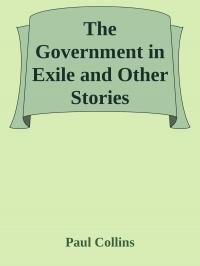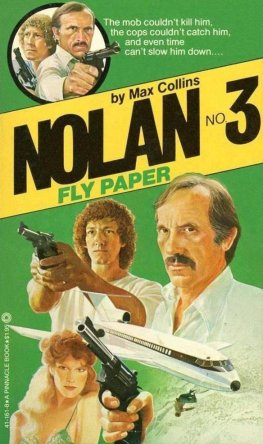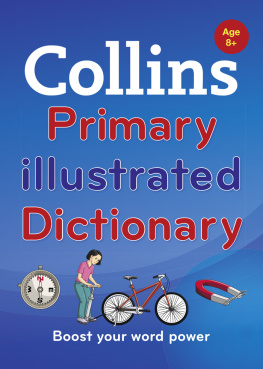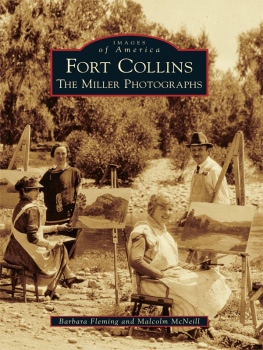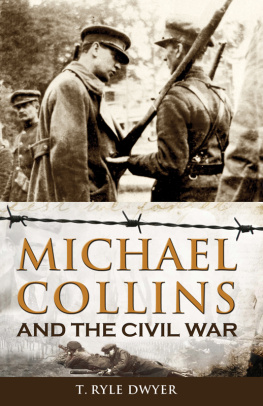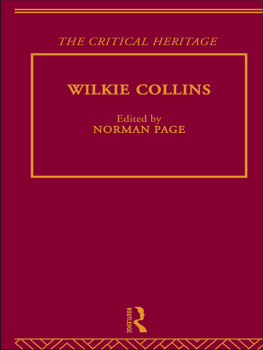Sixpence House
LOST IN A TOWN OF BOOKS
Paul Collins

Contents
For Jennifer
Chapter One
Begins Both the Book and the Journey
I HAVE NEVER noticed the view from the Flatiron Building before. Manhattan, if you tilt your head just right, is a strangely compelling piece of sculpture.
Its a good thing, my editor says, that your book isnt being published just now.
Oh?
Because he leans forward Harry Potter used up all our paper.
Youre joking.
Seriously.
No.
He looks at me, a little crestfallen. Im telling you the truth. Theres two major paper producers for New York publishers, and with a five-million print run of an eight-hundred-page book, well... everybody else has to wait in line.
I leaf through the glossies for the photo insert to my book. It has been less than thirty-six hours since I finished writing it on the other side of the continent, in a home that I now no longer own. I was still writing as the movers cleared the furniture out of the apartment, still writing as Jennifer packed the luggage and nursed Morgan to sleep, and as she double-checked that we had my British passport and her and Morgans visas. I was writing at midnight, at one oclock, at two oclock. The computer was the last thing to go into a box, its plastic housing still hot, just five minutes after I had e-mailed the manuscript to my agent.
So, I set down the glossies publishers are fighting for scraps of paper?
So to speak.
Like any editor, he has at least two office walls covered with books; slick stacks of summer catalogs are slipping off his desk; and outside in the editorial department are boxes of books and bound proofs, and yet more walls covered with more books, right down to an incongruous set of old encyclopedias.
A paper shortage? Youd think hed welcome it.
But one gets the wrong view from the Flatiron Building. For I live in a very small world. So, reader, do you. At this moment, it is just you and I, and it does not matter if you are reading this two hundred years after I have died, or translated into languages unknown to me. We have an understanding. But there are not many of us, and there never have been.
If you grew up in a rural area, you have seen how farmhouses come and go, but the dent left by cellars is permanent. There is something unbreakable in that hand-dug foundational gouge into the earth. Books are the cellars of civilization: when cultures crumble away, their books remain out of sheer stupid solidity. We see their accumulated pages, and marvel what readers they were!
But were they?
Back in the 1920s, booksellers assessed the core literary population of the United States, the people who could be relied on to buy books with a serious content, at about 200,000 people. This, in a country of 100 million: a ratio of about 500 to 1. It was this minuscule subset spread out over a three-thousand-mile swath, this group of people who could fit into a few football stadiums, that thousands of books released each year had to compete for. Perhaps the ratio has gone higher since then. You see, literary culture is perpetually dead and dying; and when some respected writer discovers and loudly proclaims the finality of this fact, it is a forensic marker of their own decomposition. It means that they have artistically expired within the last ten years, and that they will corporeally expire within the next twenty.
Readers always seem scarce. Before we left San Francisco, my wife and I went on a neighborhood house tour organized by our block association. Our stretch of Waller Street was crammed with Victorian flats, and we all oohed and aahed over each others wainscoting, box ceilings, and carved mantels. Yet, walking away from the whole thing, stuffed with architecture and potato salad, I felt a nagging doubt.
Did you notice, I asked my wife, ours was the only house with books?
We rounded the corner of Cole, where a broken TV lay in the sidewalk.
I noticed you made a beeline for their bookcases.
It is the oldest and most incorrigible trait of the booklover.
Yeah, I know. Heres the thing: all those beautiful built-in bookshelves? They dont hold any books.
And maybe they never did. If you turn the yellowed pages of a volume of Temple Bar magazine back to 1881, when these homes were built, you find this:
It really is an APPALLING thing to think of the people who have no books... It is only by books that most men and women can lift themselves above the sordidness of life. No books! Yet for the greater part of humanity that is the common lot. We may, in fact, divide our fellow-creatures into two branches those who read books and those who do not.
Times have not changed much. A recent survey found that half of American households did not buy a single book in the previous year. I knew this statistically, even as I toured my neighbors houses. And I knew it viscerally when our real estate agent looked around our own flat a few months later.
You have too many books in here. Home buyers dont like books.
He saw my expression, and shrugged helplessly. Really. You should hide them.
We did hide them, in the end; we were desperate to leave, because we couldnt afford to live in San Francisco anymore. I tried to imagine a life in the British countryside instead.
Itll be great was what I told Jennifer as the Muni bus roared by outside the nursery of our flat. Well sell this place, go abroad, and live in an old, old house with old, old books. Ill write books and play piano in the parlor, youll write books and paint in the garret, and at night... well drink Horlicks and listen to the BBC.
And then I spread my hands out to indicate what a grand idea it was.
Jennifer pondered this, tapping a pen on a dire bank statement while our son, Morgan, struggled manfully to free himself from his diaper.
Hay-on-Wye? she said.
Yes.
Hay is a small town.
Yes.
Very small.
Yes.
You wont miss the U.S.?
I wont miss guns.
Thats true.
Or SUVs.
Right.
And Britain has national health.
Good.
And the countrysides a good place to be a kid.
Thats true, she said.
And Hay has a castle right in the middle of town.
Mmm hmm.
A skateboard rumbles down the pavement outside.
But, she adds, if we sell our place here, we can never afford to live in San Francisco again. We cant come back.
Yeah.
And well have to move all our books.
Ye oh, god.
So I went to Haight Mail. Haight Mail is a little shop crammed with PO boxes and copiers off the corner of Masonic, and I had to fax some stuff to my magazine editor anyway. As their fax machine dialed, I tapped my foot and stared at the wall, and then at the stores proprietor.
You sell shipping boxes, right?
Yeah. What are you sending?
Books.
How many?
I paused to make the calculations. About... two thousand. Maybe three.
His eyebrows rise. Sent individually?
No, no. Im moving.
To where?
Wales.
He is silent for a long moment. How, he finally asks, did you get so many books?
Well.
I am from Perkiomenville, Pennsylvania, a town so small that it had no traffic lights, no streetlights, no stores, and barely any other kids within walking distance. This gave me lots of time to read. But what I chose to read was a little odd. My parents, being ambitious immigrants my mother grew up in cramped servants quarters in Berkshire, my father in Depression-era Liverpool had bought an outrageously oversize, tumbledown house, and they collected antiques just to fill it up. Wed haunt the auctions of the recently deceased with an old 1940s copy of


